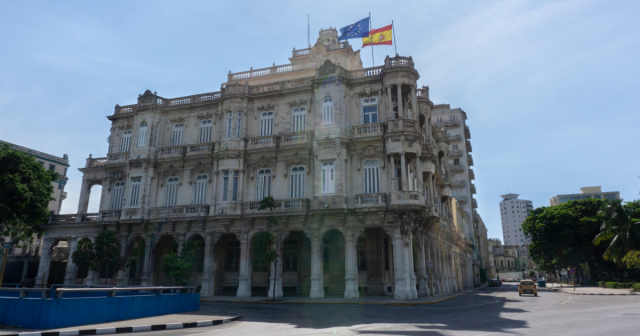On December 20, the Superior Court of Justice (TSJ) of Madrid admitted a contentious-administrative procedure against nationalizations through the Democratic Memory Law "for skipping the substantive and formal procedures."
Likewise, this judicial instance requested the adoption of precautionary measures to suspend the regulations that enable the nationalization process,reportedthe spanish newspaperThe reason.
The court sent a judicial order that same day to the Ministry of Justice to present its allegations within a period of ten days, which is interrupted in the courts until January 9 due to the Christmas holidays.
The procedure, filed by the Association for Reconciliation and Historical Truth, argues that the law “has been dictated by a manifestly incompetent body,” because it “exclusively grants” the power of regulatory development to the “Government of the nation” and “does not to a General Directorate.”
Furthermore, this association believes that the procedure established for the approval of a legal norm of such importance has been completely dispensed with, since the challenged instruction “also extends the concept of 'political' or 'ideological exile' to all people who emigrated from Spain between 1939 and 1955, without distinguishing whether they were for political or economic reasons, when the Law refers exclusively to political reasons.
Coupled with this, they show their concern about the "very serious fact that it will be the memorialist associations, parties and unions related to the Government that will have the power to certify the status of exiles."
In contrast to the Historical Memory Law of 2007, issued by the government of José Luis Zapatero, the plaintiffs consider that the Democratic Memory Law of Pedro Sánchez “has skipped a mandatory step in the regulatory development of the granting of nationality, as “It is the regulation of the Council of Ministers.”
“Only through a Government regulation could this matter have been developed with the Democratic Memory Law, and never directly by an instruction from a General Directorate of the Ministry of Justice, as has happened irregularly,” they conclude.
On October 21, the Democratic Memory Law, a legal norm that can benefit thousands of Cubans, came into force.
The new rule is also known as the Grandchildren Law. It was approved on October 5 in the Senate and could benefit thousands of Cubans by granting Spanish nationality to people born on the island, but whose grandparents were exiled from Spain.
The descendants of exiled Spanish women who lost their nationality by marrying a foreigner before 1978 will also have the right to request nationalization.
The novelty of the Law is that it specifies that Spanish nationality could be favored by “those born outside of Spain to a father or mother, grandfather or grandmother, who had originally been Spanish, and who, as a consequence of having suffered exile for political, ideological reasons, or belief or sexual orientation and identity, would have lost or renounced Spanish nationality.”
Likewise, people who are “sons and daughters of legal age of those Spaniards whose nationality of origin was recognized by virtue of the right of option in accordance with the provisions of this law or in the additional provision may acquire Spanish nationality. seventh of Law 52/2007, of December 26.”
Applications must be formalized within two years from the entry into force of this law. The Spanish government indicated that at the end of this period, the Council of Ministers may agree to the extension for one year.
The common documentation that interested parties must provideObtaining Spanish citizenship includes, first of all, the presentation of a document that proves the identity of the applicant and a literal certification of the applicant's birth. This must be issued by the local Civil Registry in which it is registered.
Additionally, they must present the literal birth certificate of the applicant's father, mother, grandfather or grandmother, who would have originally been Spanish.
In the event that the application is formulated as a grandson or granddaughter, of a grandfather or grandmother who was originally Spanish, a literal birth certificate of the father or mother that corresponds to the line of the Spanish grandfather or grandmother of the applicant will be provided.
Documentation must also be provided that proves the exiled status of the Spanish father, mother, grandfather or grandmother. This is known as the “exiled status test.”
What do you think?
SEE COMMENTS (1)Filed in:
